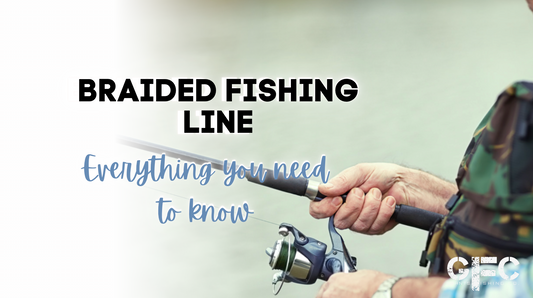
Are Fishing Lures Allowed on Airplanes?
Share
Transporting fishing lures on airplanes has been a subject of scrutiny due to security concerns in recent years. Airline regulations and security protocols prioritize passenger safety and the prevention of potential threats. As such, certain types of fishing lures may raise red flags during security screenings, leading to confusion among anglers regarding what is permissible to bring on board.

The Transportation Security Administration (TSA) oversees security measures at airports across the United States and provides guidelines on prohibited items for air travel. While most fishing lures are generally allowed in carry-on and checked baggage, there are exceptions based on specific characteristics that could be perceived as potential weapons or hazardous materials. Lures with sharp hooks or components resembling weapons, such as metal blades or spikes, may trigger security alerts and result in confiscation or delays during the screening process.
To avoid issues at airport security checkpoints, anglers are advised to pack fishing lures securely in their checked baggage whenever possible. Placing lures in tackle boxes or containers can help prevent them from being mistaken for prohibited items and streamline the screening process. Additionally, anglers should familiarize themselves with airline policies and TSA regulations regarding fishing equipment to ensure compliance and minimize the risk of confiscation or inconvenience while traveling.

While the majority of fishing lures are permissible for air travel, it's essential for anglers to exercise caution and adhere to security guidelines to prevent disruptions and delays. By packing fishing lures responsibly and staying informed about airline regulations, anglers can enjoy hassle-free travel with their beloved fishing gear and focus on the excitement of their next angling adventure.
Traveling with fishing lures on airplanes can be a bit tricky due to security concerns. Here are three tips to help ensure a smooth experience when passing through airport security with lures:
- Pack Lures in Checked Luggage: To avoid any issues at the security checkpoint, it's best to pack all your lures in your checked baggage. Fishing hooks and large lures can be considered sharp objects and may not be allowed in carry-on bags. Make sure to securely pack them to prevent damage both to the lures and to your luggage.
- Use Plastic Containers or Original Packaging: When packing your lures, consider using sturdy plastic containers or the original packaging to store them. This helps in preventing the lures from becoming entangled and also protects them from physical damage during handling. Additionally, clear containers can make it easier for security personnel to inspect them without needing to unpack everything.
- Label Your Fishing Gear: Clearly labeling your equipment as 'fishing gear' can be helpful. Include an inventory list of the items inside the baggage, especially if you have expensive or extensive gear. This not only aids in quicker inspections should your bag be selected for a manual check but also helps in case of any loss or damage claims.
By following these tips, you can help ensure that your fishing lures and other equipment arrive safely and without hassle at your destination.
We'd Love to Hear from You!
Have you traveled with fishing lures recently? Share your experiences in the comments below to help fellow anglers navigate the challenges of flying with their gear. Whether it’s a tip, a story, or a question, your insights are invaluable to our community.
Stay Hooked!
Don't miss out on more helpful articles and fishing tips from Grant's Fishing Company. Subscribe to our newsletter to get the latest updates and expert advice delivered straight to your inbox. Happy fishing, and we look forward to seeing you on the water!






